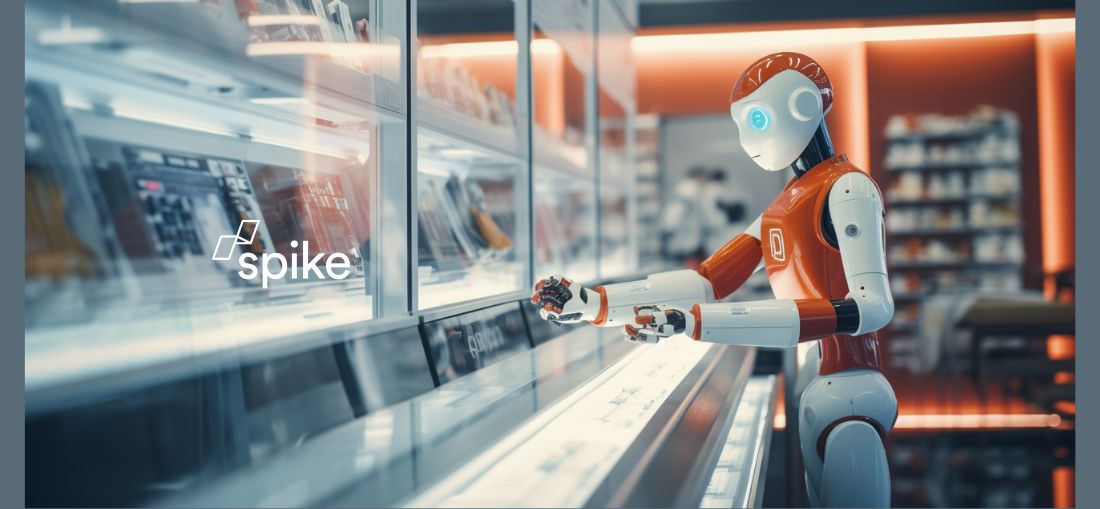Earlier this month, Google Cloud unveiled a series of new AI and generative AI-powered technologies that the company hopes will improve the retail experience. But, will they work and who will benefit? Let’s take a look.
What has Google Cloud announced?
Google made a series of announcements prior to NFR 2024, the retail industry’s largest event. These announcements included the launch of:
- A generative AI-powered conversational commerce solution that enables retailers to easily deploy personalised chatbots for online shopping
- A customer service modernisation solution that creates personalised and streamlined experiences
- A catalogue and content enrichment solution that helps retailers simplify and accelerate the cumbersome product cataloguing process and improves product discovery
In addition, the company also announced that Google Cloud’s flagship search technology for retailers will be enhanced with a large language model (LLM) capability. This will allow it to help shoppers find relevant products more easily.
Finally, Google Cloud has also announced a combined edge hardware and software offering, Google Distributed Cloud Edge. This will help large retailers easily deploy, manage and scale applications and AI innovations across thousands of locations.
When will the new solutions become available?
Google Cloud’s new generative AI solutions for retailers are all cloud-native, service based-AI solutions. All three will become available in the first quarter of 2024.
The LLM capability in Vertex AI Search for retail is now available to qualified retailers in public preview with general availability coming later this year. Google Distributed Cloud Edge for retailers will also be generally available in the first quarter of 2024.
What is Google Cloud hoping to achieve?
Generative AI has been leading the headlines for the last 12 months. However, this is the first time the technology has seriously been discussed (in the mainstream at least) in relation to the retail space. With these announcements, it’s clear that Google Cloud believes the technology can create a number of efficiencies that can help both businesses and customers alike.
For example, via the use of these new technologies, Google Cloud can connect various business operations, including everything from first touchpoints to stock specialists and back office operations. The benefits of this are clear. By harnessing the power of generative AI, Google Cloud can help retailers personalise online shopping experiences, modernise operations and transform in-store technology rollouts.
Such benefits are likely to be hugely appealing. After all, Google Cloud’s own research has suggested that 81% of American retail decision-makers feel urgency to adopt generative AI.
Speaking about these new generative AI technologies, Google Cloud’s vice president of strategic industries, Carrie Tharp, said “In only a year, generative AI has morphed from a barely recognised concept to one of the fastest-moving capabilities in all of technology and a critical part of many retailers’ agendas… With the ability to accelerate growth, boost efficiency, fuel innovation, and reduce toil, generative AI solutions are ready to be deployed now, and Google Cloud’s recent innovations can help retailers recognise value in 2024.”
How influential will the new tools be?
At face value, very. After all, Google Cloud’s new conversational commerce solution could be a complete game changer for shoppers. This is because this tool will embed generative AI-powered virtual agents on a retailer’s website and mobile app. From here, virtual agents will be able to have helpful and nuanced conversations with shoppers using natural language. They’ll also be able to provide product options based on a shopper’s preferences.
Similarly, Google Cloud’s new LLM capability in Vertex AI Search for retail will vastly improve the shopper experience as retailers will be able to provide Google-quality search, browse and recommendations on their digital storefronts.
All of Google Cloud’s new products and tools will provide multiple benefits to both shoppers and retailers. They will reduce friction, improve the overall experience and make shopping online easier than ever before. Although they’re not revolutionary at this stage, it’s important to remember that Google Cloud is only scratching the surface of what can potentially be achieved through generative AI.
Why is this important?
2023 was the year many people realised the theoretical possibilities of AI. It’s the year many people embraced ChatGPT and began to see how generative AI could improve their own lives.
That said, in 2023, many people who weren’t necessarily well connected to the digital world still saw AI as a ‘technology for the future’ and viewed it in the abstract. However, 2024 looks set to prove that the technology is here and ready right now. After all, we’re still only in January and we’re already seeing practical ways that generative AI can be used immediately.
Throughout the year, this trend is highly likely to continue. The more people see how generative AI can improve their lives, the more they’ll embrace it. Particularly if it can reduce the friction they experience when carrying out everyday tasks, such as shopping online.
More broadly speaking, this announcement from Google Cloud is likely going to be symbolic of a greater convergence between tech and humans, particularly in the retail space. After all, Elon Musk has also shown us how his robots can now fold clothes in stores!
Whether it relates to ecommerce or the traditional store experience, the relationship between AI and the overall retail experience looks set to change markedly this year. We can’t wait to see how else things will change for customers and retailers alike.
Tom Brook
When he's not crafting content, Tom's obsessed with all things sport, particularly football, cricket, golf and F1.
